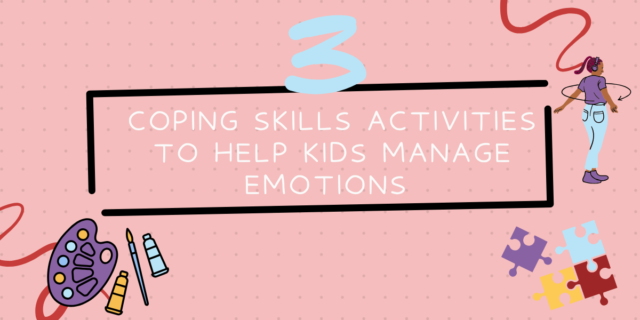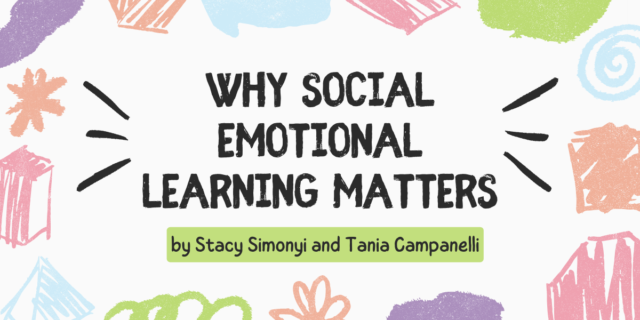
Because grief work– the act of teaching about and around loss as it presents in our learning environments and the lives of our students– is inherently hard and makes us vulnerable, we often approach it feeling wobbly at best. We may fear that we have said or done the wrong thing while supporting (or not supporting) someone who is grieving, or our fear may cause us to slip into silence.
As educators, we understand that learning is a process that requires risk and revision. So, too, with grief support.
A familiar idea, Carol Dweck’s “growth mindset,” speaks to this dynamic. As a refresher, fixed and growth mindsets refer to the following:
Because grief work– the act of teaching about and around loss as it presents in our learning environments and the lives of our students– is inherently hard and makes us vulnerable, we often approach it feeling wobbly at best. We may fear that we have said or done the wrong thing while supporting (or not supporting) someone who is grieving, or our fear may cause us to slip into silence.
As educators, we understand that learning is a process that requires risk and revision. So, too, with grief support.
A familiar idea, Carol Dweck’s “growth mindset,” speaks to this dynamic. As a refresher, fixed and growth mindsets refer to the following:
Fixed Mindset
A fixed mindset leads us to believe that our capabilities and capacities are limited and unchanging. In such a mindset, we believe absolute statements such as “I’m horrible at math” or “I shouldn’t even try to apply for a promotion, because I can’t present in front of large crowds.” With these beliefs, we become averse to risk and opportunity and can limit our own potential. We view constructive criticism as confirmation of our unworthiness. And we might spiral into jealousy, comparison, or self-criticism.
Growth Mindset
A growth mindset, on the other hand, allows us to believe that our skills are fluid and ever-changing and that we always have the capacity to iterate and improve. Through this lens, we view setbacks as temporary stumbles rather than permanent roadblocks. We might say, “I struggle with math, but I will get better with practice,” or “Even though I don’t like presenting in front of large crowds, I’m really excited for this potential promotion, so I’m going to sign up for a public speaking class and apply for this opportunity anyway.” With a growth mindset, the world is full of opportunities for lifelong learning.
Neurologist Lisa M. Shulman writes in her book Before and After Loss: A Neurologist’s Perspective on Loss, Grief, and Our Brain about a study conducted by researchers Jack Bauer and George Bonanno, who explored “how people talk during bereavement, differentiating between statements like I can do things well (which speaks to self-efficacy), I do things well (which speaks to self-management), and I’m a good person (which speaks to self-esteem)” (2018, 112). People who made statements of self-efficacy “had fewer grief symptoms and better adaptation” (112). “Ironically,” Shulman writes, “the best predictor of psychological health is the belief I’m mostly good, some bad. In other words, some negative self-evaluation is adaptive, while too little (I’m not bad) or too much (I’m very bad) is maladaptive” (112).
These reflections are closely related to the idea of the growth mindset; if believing in our abilities to overcome loss helps us when we are grieving, how, then, might a similar growth mindset guide us in grief work at school, especially when we are experiencing vicarious trauma or grief?
Together, we can work to cultivate a grief work growth mindset by focusing on the three “selves” of social-emotional support: self-efficacy, self-management, and self-esteem:
Self-Efficacy
Self-efficacy (Bandura 2012) is the belief in our ability to act with competence. One could have situationally high self-efficacy (“I can absolutely recite Shakespeare’s plays by heart”) but low self-esteem (“Despite my impressive knowledge of plays, I am not smart or worthy of love”). A statement of high self-efficacy in the context of grief work might be “I can make time and space for my grieving students without sacrificing my own well-being.”
Self-Management
Self-management is one’s ability to take ownership of their actions, reactions, well-being, and executive functioning. In the context of grief work, self-care strategies are examples of
self-management.
Self-Esteem
Self-esteem is one’s belief in their inherent value as a person. In a grief context, a person with low self-esteem may feel inadequate, unworthy, and incompetent, which would impede their ability to connect with students who are struggling. Counteracting such tendencies with positive self-talk and healthy relationships can help restore a sense of esteem. I’m going to sign up for a public speaking class and apply for the opportunity anyway.” With a growth mindset, the world is full of opportunities for lifelong learning.
All of these “selves” influence not only the efficacy of our grief work but also the extent to which we are susceptible to the challenges of that work. It is important to note that Secondary Traumatic Stress – a trauma response that can occur in folks who are routinely exposed to others’ trauma (NCTSN 2011) – is a natural response to trauma exposure; not necessarily within our control; often a result of inequitable systems; and a serious experience that may require professional intervention and should not be reduced to a set of tips and tricks.
However, creating within ourselves an awareness of self-efficacy, self-management, and self-esteem—tracking our own status in relation to each of these entities—offers a foundation for taking care of ourselves as we grapple with loss and as we cultivate our grief-work growth mindsets.
Brittany is passionate about connecting theory and practice to foster collaborative relationships with students, teachers, and writers around the world. She is the Director of Teaching & Learning and Product Manager of Global Writing Workshops at Write the World LLC, where she designs, develops, and implements original writing curricula and supports middle and high school students and teachers across continents.
Her writing has appeared in The Washington Post; Education Week; Edutopia; Inside Higher Ed; We Need Diverse Books; English Journal and Literacy & NCTE of the National Council of Teachers of English; Teachers’ and Writers’ Magazine; and Thrive Global, among other outlets, and she has developed curricula for PBS Learning Media, Write the World, Smith College, Boston University, and Race Project Kansas City, among other schools and organizations.
Brittany studied English and Education at Smith College and the University of Massachusetts, Amherst; Creative Nonfiction at the Yale Writer’s Workshop; and is pursuing her certificate in Trauma Studies from the Trauma Research Foundation.
You can connect with Brittany on her website or on Twitter.
References
Bandura, Albert. Self-efficacy: The Exercise of Control. New York: W.H. Freeman, 2012.
Dweck, Carol. 2008. Mindset: The New Psychology of Success. New York: Ballantine
Books.
National Child Traumatic Stress Network (NCTSN), Secondary Traumatic Stress
Committee. 2011. Secondary Traumatic Stress: A Fact Sheet for Child-Serving
Professionals. Los Angeles and Durham, NC: National Center for Child
Traumatic Stress. https://www.nctsn.org/sites/default/files/resources/fact-sheet
/secondary_traumatic_stress_child_serving_professionals.pdf.
Shulman, Lisa M. 2018. Before and After Loss: A Neurologist’s Perspective on Loss,
Grief, and Our Brain. Baltimore: Johns Hopkins University Press.
 Visit
Visit 

